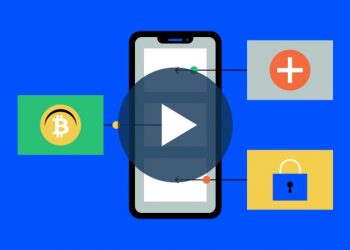Mobile app developers face many challenges in their development projects. They should develop high-quality applications within the clients’ expected timelines and keep the development cost within the budget. Thus, mobile app developers should have a better approach to streamlining mobile app developments. If not, your entire efforts might end up with failures. Therefore there are two key aspects that you have to think of:
- Effective Project Management
- Use DevOps Methodology
Table of Contents
Effective Project Management to Streamline Mobile App Development
In your mobile app project management, there are a few key factors to think about:
Fastidious Action Plan:
As a mobile app developer or a project manager, at the beginning of your project, you need to have a detailed plan to break the entire project into smaller modules with specific milestones. This task should be done using an agile project charter to show the objective, impacts, risk factors, and staffing.
System Guideline Evaluation:
The project manager should evaluate the platform-specific guidelines before starting the project. Android and iPhone platforms have different application building instructions during the development phases.
System Requirements Specification (SRS):
Before starting the project, there should be written communication between the project manager and the client on the requirements and expectations of the client from the proposed mobile app. This SRS will help you define the project scope and plan and streamline the process by eliminating discords of clients’ expectations and minimizing revisions.
Clear Communications within the Team:
Once you have your plan with all the milestones set, your next step is to assign tasks to app developers and communicate with them. There are different models you can use for this. The RACI model is one of the perfect models for a clear idea about roles and responsibilities.
- R – Responsible who can complete the task
- A – Accountability of final decision and output
- C – People needs to be consulted before any decision
- I – People who should be informed about any decision
Everyone should be informed about their roles and responsibilities. Encourage sharing ideas and concerns during the project among the team members, leading the team for innovations.
Results Evaluation:
The project manager should have a reliable mechanism to evaluate the inputs and outputs of the project continuously. In his project evaluation setup, there should be a set of key indicators such as key accomplishments and achievements, critical challenges, actual ROI (Return on Investment) versus planned ROI, etc.
Using Best Project Management Tools:
Choosing the right tools for your project management tool is a critical factor for the success of your project. A few of them are Asana, Trello, Pivotal Tracker, and Slack.
Use DevOps Methodology to Streamline Mobile App Development
DevOps is a set of practices, concepts, and tools that enables development and operational teams to work together as cross-functional teams and deliver high-quality products. A DevOps pipeline enhances this development process with its automated tools for CI/CD (continuous integration and deployment), continuous feedback, and continuous operations. DevOps gets most of the aspects from the Agile approach.
DevOps streamline your mobile app developments in many ways. Let’s learn a few of them:
Faster and Continuous Deployments:
Because development and operations teams work together in the DevOps approach, they can do bug-free proper product deployments to the production continuously with its CI/CD automated tools such as Fastlane, Parse Server, App Design Templates, among others.
Increased Product Quality:
Although the quality assurance process is complicated, you can control it with DevOps and enhance the quality of your process and the product. DevOps is concerned with the whole application development structure and analyzing the code from the beginning. Keysight Eggplant, ZAPTEST, and mabl are some of the DevOps tools that you can use to ensure the high quality of your mobile applications.
High Collaboration among Teams:
DevOps breaks the conventional siloes and increases the collaboration between the teams during the application development process. This mechanism shortens the feedback loop and reduces the development process’s bottlenecks and inefficiencies. These practices streamline your mobile app developments and synchronize development efforts with the business goals. Rational DOORS Next Generation (DNG), Pivotal Tracker, and Bitbucket Server are a few DevOps tools that support improving collaboration.
Make Room for Innovations:
The project team achieves FTT (First Time Through) and eliminates rework due to the cross-functional concept. Also, DevOps automation tools save a massive number of hours. This saving makes room for the project team for more innovation to streamline the mobile app development and outshine your competitors.
Follow Techia for more!














